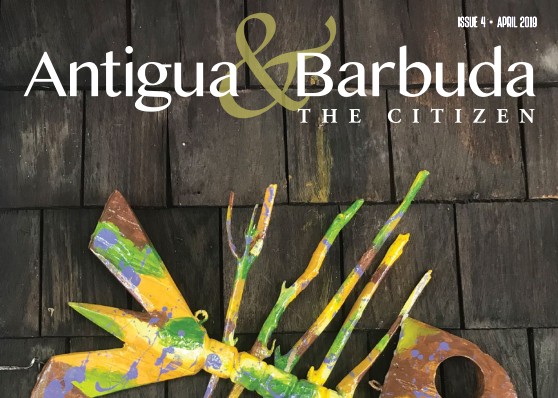This blog is on Issue 4 of The Citizen from April 2019 which covers various topics relevant to the economic growth and cultural significance of the Caribbean. It explores investment migration programs, their contribution to building sovereign equity, and sustainable development through the Blue Economy.
Building Sovereign Equity in the Caribbean

Investment migration programs have transformed the economic landscape of Caribbean nations. This blog post explores how these programs contribute to fiscal autonomy and sustainable growth in the region.
Economic Transformation
Investment migration programs, such as citizenship by investment (CBI), have provided crucial funding for infrastructure projects, tourism development, and renewable energy initiatives. These programs have helped Caribbean nations reduce debt and foster economic resilience.
Case Study: Antigua & Barbuda
In Antigua & Barbuda, the CBI program has become a significant revenue source, contributing to social security payments and debt reduction. The program has also funded critical projects, such as solar energy installations and post-disaster rebuilding efforts in Barbuda.
Sovereign Equity
Sovereign equity, supported by investment migration, offers a sustainable alternative to traditional debt financing. By attracting high-net-worth individuals and their investments, Caribbean nations can enhance their economic stability and reduce dependency on external debt.
Investment migration programs play a vital role in building sovereign equity and promoting sustainable growth in the Caribbean. These programs provide a valuable lifeline for small island nations, enabling them to achieve greater fiscal autonomy and economic prosperity.
The Value of the Oceans: Where Blue-Growth Opportunities Abound

The oceans offer vast potential for economic growth, particularly in the Caribbean. This blog post examines the concept of the Blue Economy and its potential to drive sustainable development in the region.
Understanding the Blue Economy
The Blue Economy encompasses various economic activities related to the ocean, including fisheries, tourism, marine biotechnology, and renewable energy. It aims to balance economic growth with the sustainable use of marine resources.
Economic Opportunities
The Caribbean’s extensive marine territory presents numerous opportunities for blue growth. Sustainable fisheries, aquaculture, and eco-tourism are among the key sectors that can drive economic development while preserving marine ecosystems.
Challenges and Solutions
Despite the potential, the Blue Economy faces challenges such as overfishing, pollution, and climate change. Addressing these issues requires robust policies, technological innovation, and international cooperation to ensure the long-term health of marine environments.
The Blue Economy holds significant promise for the Caribbean, offering a pathway to sustainable economic growth. By leveraging their marine resources responsibly, Caribbean nations can unlock new opportunities and ensure a prosperous future for their communities.
Mangrove Forests: The Roots of the Sea

Mangrove forests are vital coastal ecosystems, providing numerous ecological and economic benefits. This blog post explores the importance of mangrove forests and the ongoing efforts to protect and restore them.
Ecological Significance
Mangroves serve as a crucial habitat for many marine species, including fish, crabs, and birds. They act as nurseries for young marine life and offer protection against coastal erosion by stabilizing shorelines with their intricate root systems.
Economic Benefits
Mangroves contribute significantly to local economies through fisheries, tourism, and the protection of coastal infrastructure. Their ability to act as natural barriers against storm surges and tsunamis can save millions in potential damages.
Conservation Efforts
Various conservation initiatives are underway to preserve and restore mangrove forests. These efforts include reforestation projects, community engagement, and policy advocacy to protect these vital ecosystems from threats such as deforestation and climate change.
Mangrove forests are the roots of the sea, essential for maintaining coastal biodiversity and protecting coastal communities. Continued conservation efforts are crucial to ensure these ecosystems thrive for future generations.
Uniting People Through Soca Music

Soca music, a genre originating from the Caribbean, has a unique ability to bring people together. This blog post delves into the history of soca music and its role in uniting communities across the Caribbean and beyond.
Origins of Soca
Soca music was created in the 1970s by Trinidadian artist Lord Shorty, who fused traditional calypso with Indian rhythms. This genre quickly gained popularity for its infectious beats and vibrant energy, becoming a staple in Caribbean culture.
Cultural Impact
Soca music is more than just entertainment; it is a cultural phenomenon that fosters unity and pride among Caribbean people. It plays a significant role in festivals and celebrations, bringing together diverse communities to celebrate their shared heritage.
Global Influence
The influence of soca music has spread far beyond the Caribbean, with international artists and audiences embracing its lively rhythms. Soca music festivals and events are now held worldwide, showcasing the genre’s universal appeal and its power to connect people across cultures.
Soca music is a unifying force that transcends cultural and geographical boundaries. Its ability to bring people together in celebration and joy is a testament to its enduring legacy and global impact.
Continue reading Issue 5 to learn more about the evolving economic and cultural dynamics of the Caribbean. For the full digital version of this issue, visit Issue 4 of The Citizen Magazine.


0 Comment